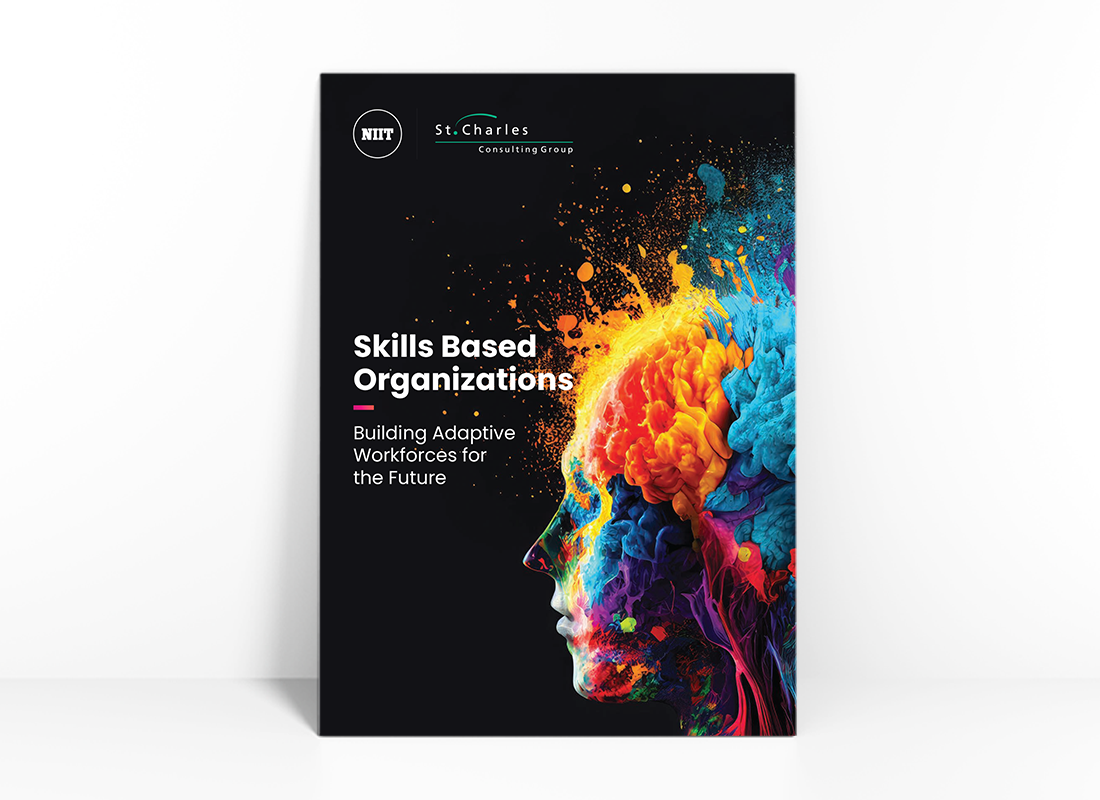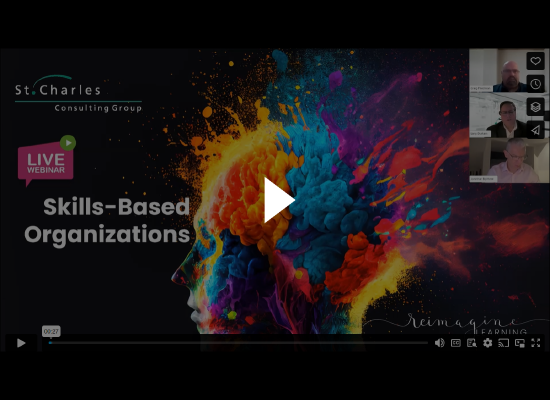Skills-Based Organizations
The digital transformation, future of work, the gig economy, and agile ways of work transformed the landscape of business, forcing organizations to become more agile, innovative, and responsive. To assess talent, reskill employees, and adapt to new business demands, organizations are exploring transitioning to skills-based talent models focused on mapping critical capabilities, enabling continuous learning, and leveraging analytics and AI.
An ongoing research initiative by NIIT and St. Charles Consulting Group involving 20 pioneering companies found that despite the widespread interest in skills, many organizations are still in the early stages of their skills journey. The report uncovers the challenges, maturity models, case studies, and best practices to develop a skills-based learning and talent ecosystem.
Key Takeaways
Learn how industry-leading organizations are developing skills within their own companies.
Understand why the majority of organizations are still in the early stages of their skills journey despite widespread interest in skills.
Discover how you can begin building a Skills-Based Organization today by reaching out to our consulting team.
Six Business Drivers for Skills
Speed of business changes
The rapid pace of business evolution, driven by automation and the future of work, is the overarching reason for organizations to transition to a skills-based talent strategy.
Economic conditions impacting the workforce
Economic drivers such as business growth and market changes make it imperative for organizations to adopt a skills-based talent strategy.
Reskilling the workforce
As the landscape of jobs evolves, reskilling the workforce is a critical driver for organizations to consider a skills-based talent strategy.
Rationale for change
Ensuring the business has the correct quotient of talent to deliver the business strategy.
Improve productivity & performance
Improve productivity & performance of team and workers
Increase organizational agility
Increase organizational agility and ability to innovate
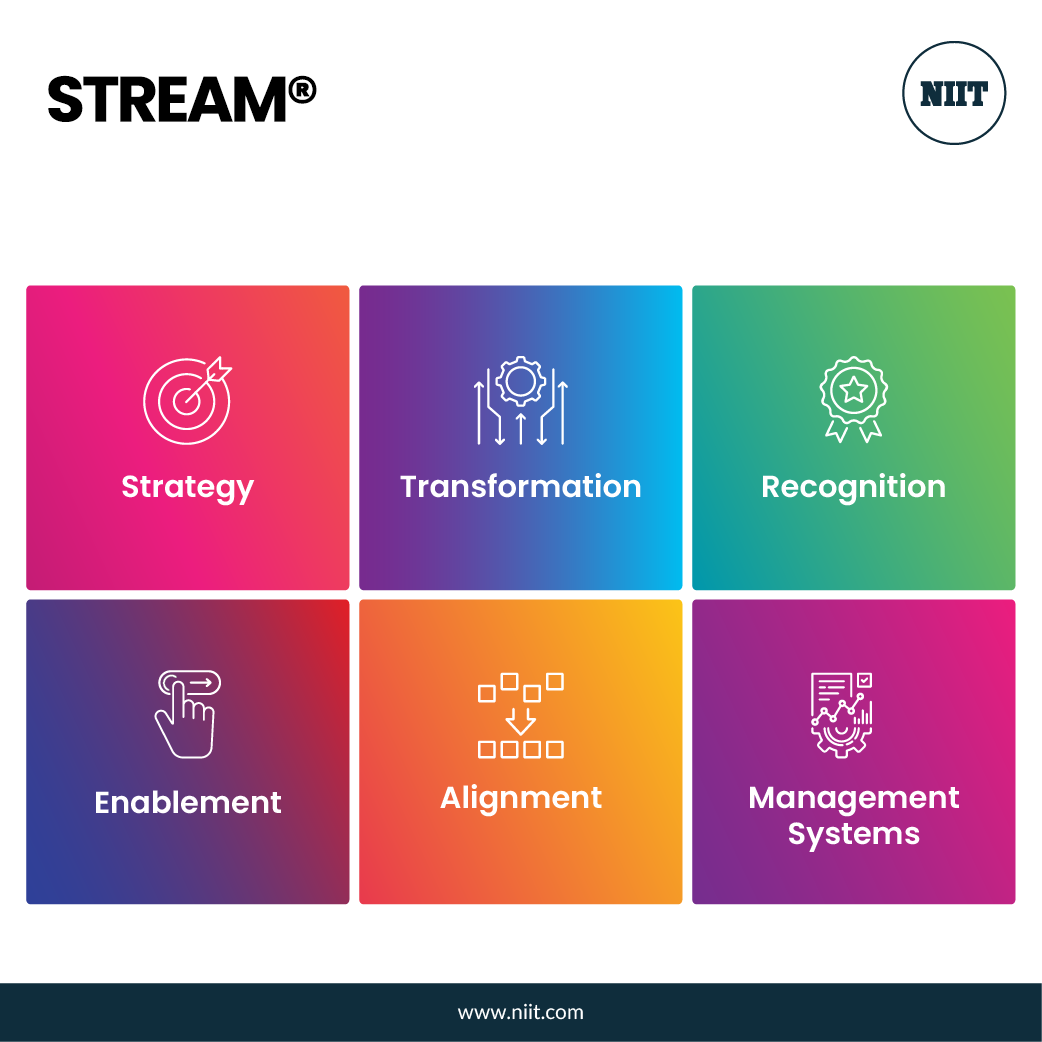
Our Approach
Our research relies on a structured approach that utilizes our Skills-Based Talent Strategy Framework®, STREAM®.
The six dimensions of STREAM® include Strategy, Transformation, Recognition, Enablement, Alignment and Management Systems that serve as a framework to explore and evaluate the different aspects and successes of becoming a skills-based organization.
Insights
Skills-Based Organizations
In this webinar, NIIT and St. Charles Consulting Group shared the in-depth findings of their skills-based organizations (SBOs) research which was gathered from interviews with industry-leading organizations.
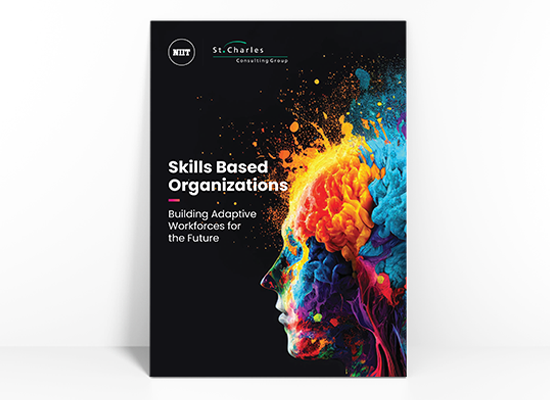
Skills-Based Organizations
Gain insights from industry-leading organizations that participated in our survey on the initiatives to develop skills within their own companies.

Navigating Challenges and Benefits of Skills-Based Talent Strategy
From reducing skills-gap to fostering a culture of continuous learning, the benefits are numerous.
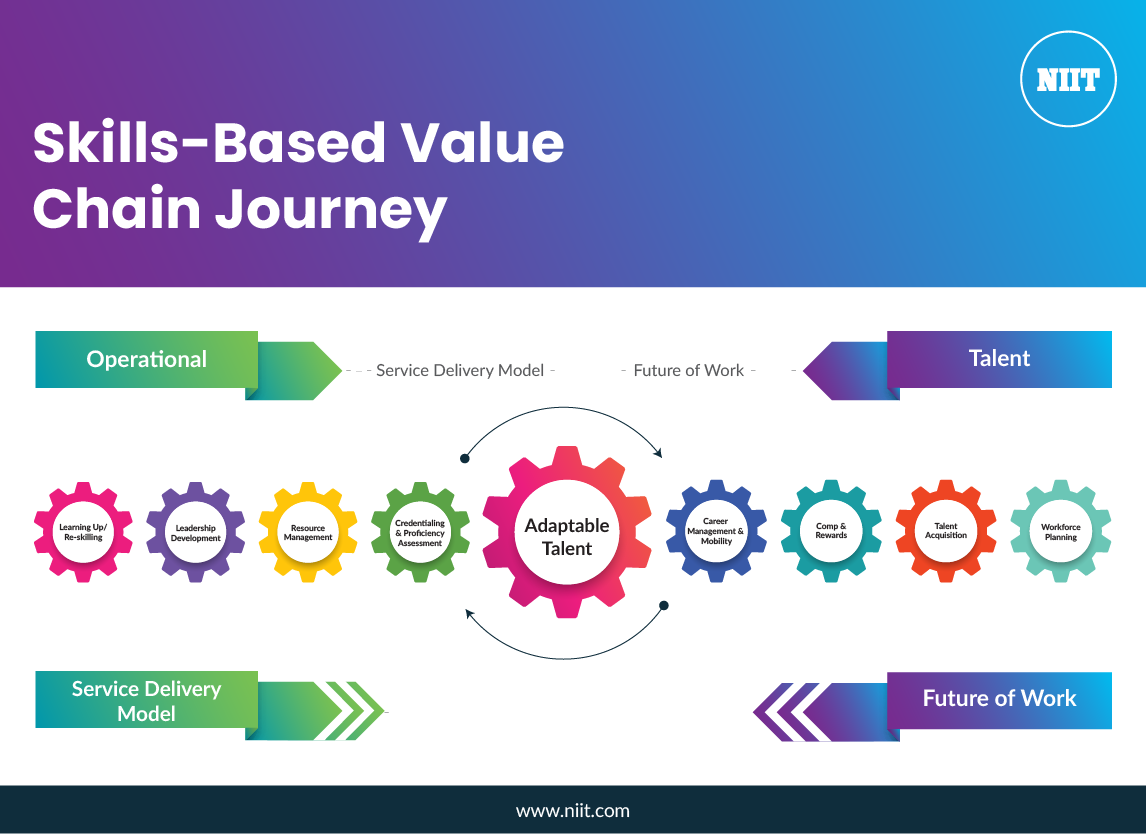
Skills-Based Value Chain Journey
Skills journeys start in different places, pending the business drivers, but tend to proceed to adjacent steps.


